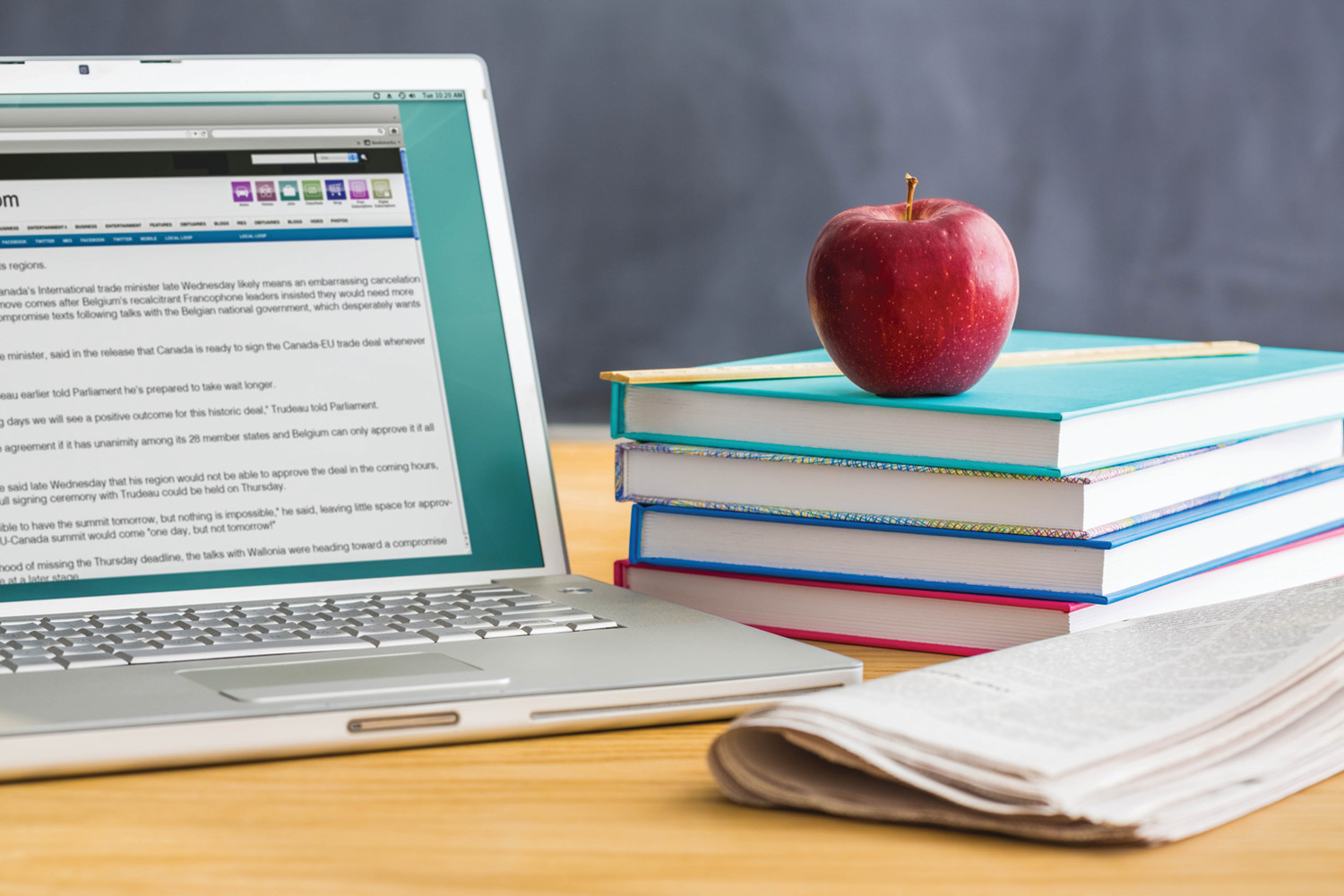Locust Valley students decry lack of WiFi
The first day of school held an unwelcome surprise for students attending the Locust Valley Central School District — no WiFi. Three students, leaders in the high school’s Student Government, implored the district to reconsider its decision at a Sept. 6 meeting of the Board of Education.
District students were given Chromebooks this week, but the student representatives, Seamus Fallon, Joe McNamara and Sarah Lubow, say the devices are inferior to the laptops that many purchased — which, without WiFi, they can no longer use in school buildings. Because the district requires students to use Google Drive to create documents, Microsoft Word, which is often on a laptop and does not require WiFi, can’t be used, either.
Fallon, 17, a senior and a Student Government co-president who lives in Bayville, is enrolled in the I.B. Diploma Program. Before starting his junior year, he persuaded his parents that he needed to purchase a laptop computer to complete the intensive work that would be required. “We split the cost of a MacBook Pro,” he said, adding that he paid $700. “I used it my entire junior year at school, and now it’s obsolete.”
There is some work that can be done on the Chromebook, he acknowledged, and it will be sufficient for younger students. “But the Chromebooks don’t have a touchscreen,” he said. “Since the first day of school, everyone has been complaining. Some for the wrong reasons, like that they can’t use their phones.”
But not having access to a cellphone can be a problem, too. Student Government Vice President Lubow, 17, a senior from Locust Valley, said that when sports practices are canceled, the coaches won’t be able to let students know without WiFi, and added that there aren’t any announcements at the high school about after-school sports. “One of my friends was waiting and waiting for a field hockey practice, along with other teammates,” Lubow said, “because they didn’t know it was canceled.”
Fallon is a captain of the varsity football team. He said that a phone app, GroupMe, has been used by coaches in the past for group chats with players. “Without WiFi in the school we can’t use it, and outside there’s a dead zone,” he said. “With public WiFi inside the school, we could get the text messages.”
All three students said they were most upset that they were not told there would be no WiFi by the district. Lubow said she had filled out a survey last spring, but had no idea that would be the outcome.
The survey asked if students had personal devices and if they wanted to go paperless at school, she said. Also, if they could take tests on laptops, would they want to, and would they like service to be better in the schools? “Three weeks before school started, rumors went around that we’d be getting Chromebooks,” Lubow said, adding that she didn’t hear there would be no WiFi. “Of all of the public schools I know they all have WiFi.”
The Board of Education and Superintendent Dr. Anna Hunderfund listened closely to what the students had to say. Board President Brian Nolan said that trustees would take the students’ concerns into consideration.
McNamara, 17, of Bayville, another Student Government co-president, said he had a solution that would benefit those who bought $1,500 laptops, like he did. “Give the student a logon that would work for our laptop that also works for the Chromebooks,” he said, adding that not only students will be concerned about the problem. “By next week,” he said, “parents will complain too.”
New LVHS Principal Patrick DiClemente emailed the students on Sept. 7, saying he wanted to meet with them to resolve the situation.
Reached after the board meeting, he said that at Massapequa High School, where he was principal before coming to Locust Valley, the students were issued Chromebooks, but they also had WiFi.
There were two meetings scheduled this week, one for administrators to discuss the WiFi issue and one for the student representatives to meet with DiClemente. “We will consider a guest sign-in for the personal computers,” he said. “We’re at a crossroads in the district. I don’t like the surprise element that the students experienced.”

 49.0°,
Fog/Mist
49.0°,
Fog/Mist 




